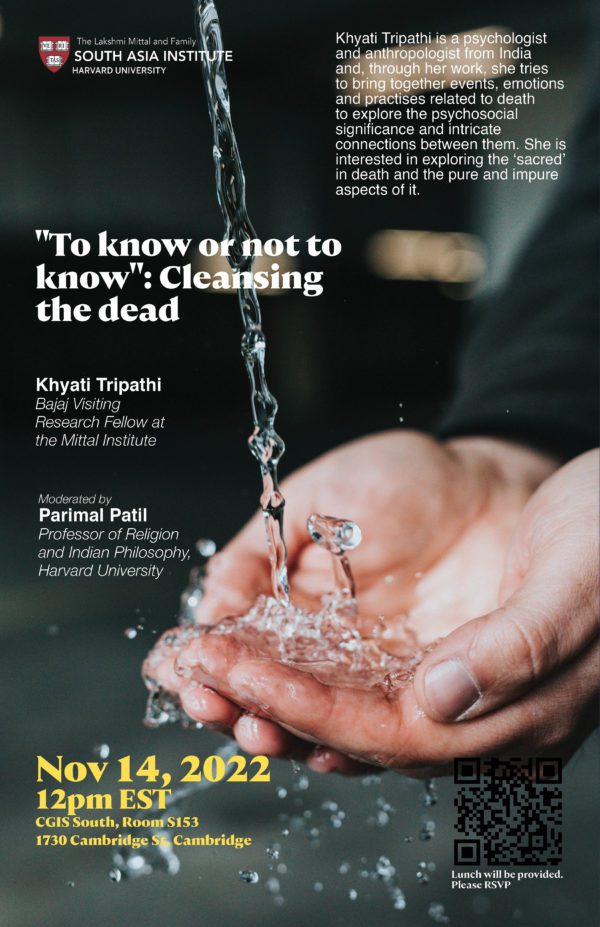Khyati Tripathi
Bajaj Fellow at The Mittal Institute
“While cleansing his dead body, my father’s skin peeled off especially from the areas where the ECG machine was connected.”; “She looked beautiful, she had a nice tan on her wrist, I think she liked wearing watches.” While Arvind tried finding ways around his father’s peeling skin to complete the purificatory ritual, Amy recalled a nice watch tan she had noticed while cleansing a lady’s dead body. In this talk, like Arvind’s and Amy’s, I will elaborate on the experiences of the Hindu and Jewish participants while performing the cleansing ritual for a familiar deceased as opposed to an unfamiliar deceased respectively. Familiarity/unfamiliarity contingent on the familial and social ties governed the psychological space that construed between the dead and the alive. Through the participants’ experiences, I will focus on the intricate ‘moment’ of contact between the alive and the dead body during the ritual performance and dissect it further to explore the “ambivalence in familiarity” (Tripathi, 2021) and the “uncanny” (Freud, 1919) in death. Lastly, I will tie the ‘knowing’ and ‘un-knowing’ embedded in familiarity with “meta-experience” and “meta-listening” (Tripathi, 2021) focusing on the cognitive and affective impact of narrating a “painful” and “unsavory” experience to a ‘known imagined’ or an ‘unknown imagined’ listener.
Khyati Tripathi is a psychologist and anthropologist from India and, through her work, she tries to bring together events, emotions and practices related to death to explore the psychosocial significance and intricate connections between them. She is interested in exploring the ‘sacred’ in death and the pure and impure aspects of it. Her work is based at the intersection of social anthropology, psychology, and psychoanalysis.
This talk is part of The Mittal Institute’s Visiting Scholar Talk series.


